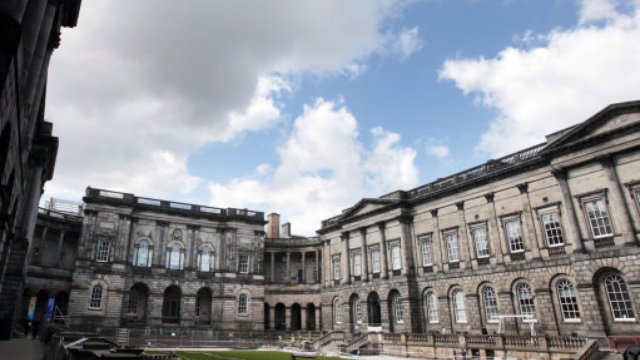Discrimination Affects Third Of Ethnic Minority Scots
3 August 2017, 07:16 | Updated: 3 August 2017, 07:23

Around one third of black and ethnic minority (BEM) people in Scotland have faced discrimination within the last two years, according to a study.
Researchers asked a sample of 508 BEM people a range of questions about racial discrimination experiences.
The results show around third said they had been targeted by abuse, with 33% describing the issue as "widespread".
However, 61% of those who said they had experienced prejudice did not report it.
Lead researcher Professor Nasar Meer said: "This survey points to a continuing trend of discrimination that is felt in the everyday lives of black and minority ethnic Scots.
"Whether it is in the street, on the bus or in the workplace, black and ethnic minority Scots are clearly encountering experiences that as a society we have to do much more to challenge."
Of those who had experienced discrimination, 38% said it happened when applying for a job, while 31% said it had affected their promotion chances.
Almost one third reported facing prejudice while using public transport and 18% in education.
A significant majority (83%) of those who said they had experienced discrimination felt it was because of their perceived ethnicity.
Religion was also a target of abuse, according to 44%.
More than half of respondents with a black African Caribbean heritage said they had experienced discrimination in Scotland in the last two years.
This compared with nearly a third of both Asian (30%) and mixed heritage (32%) respondents.
Just over half believe the Scottish Government is doing enough to tackle discrimination, with 30% disagreeing, and 62% had confidence in the authorities and other organisations to pursue discrimination cases, while 27% disagreed.
Prof Meer added: "While there is good news to report - that black and ethnic minority Scots continue to have faith in Scottish institutions to take racism seriously - there is clearly an acceptance of both low-level and more obvious experiences of racial discrimination in Scotland. This is illustrated in considerable under-reporting, and so more targeted support is needed to help overcome this."
The research was carried out by the University of Edinburgh and polling company Survation.
John Wilkes, head of the Equality and Human Rights Commission (EHRC) in Scotland, said: "This research adds to existing evidence published by the Commission, "Healing a Divided Britain", and the Scottish Household Survey that racism is still a major issue in Scottish society. Nobody in Scotland should be harassed or denied the opportunity of a job because of their race.
"People who commit harassment should expect to face prosecution but this can only happen if people report it. We are part of the Lord Bracadale review of hate crime legislation and continue to call for improvements in support for victims of hate crime and harassment in reporting their experience to the police and challenging discrimination in the courts."







